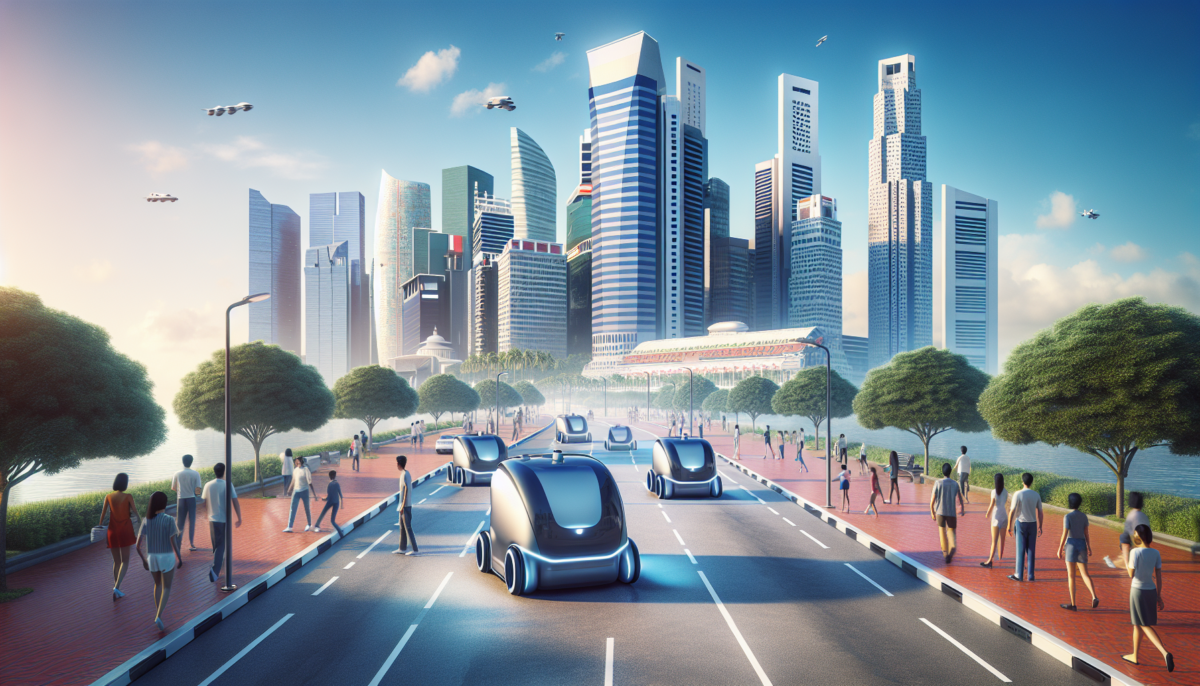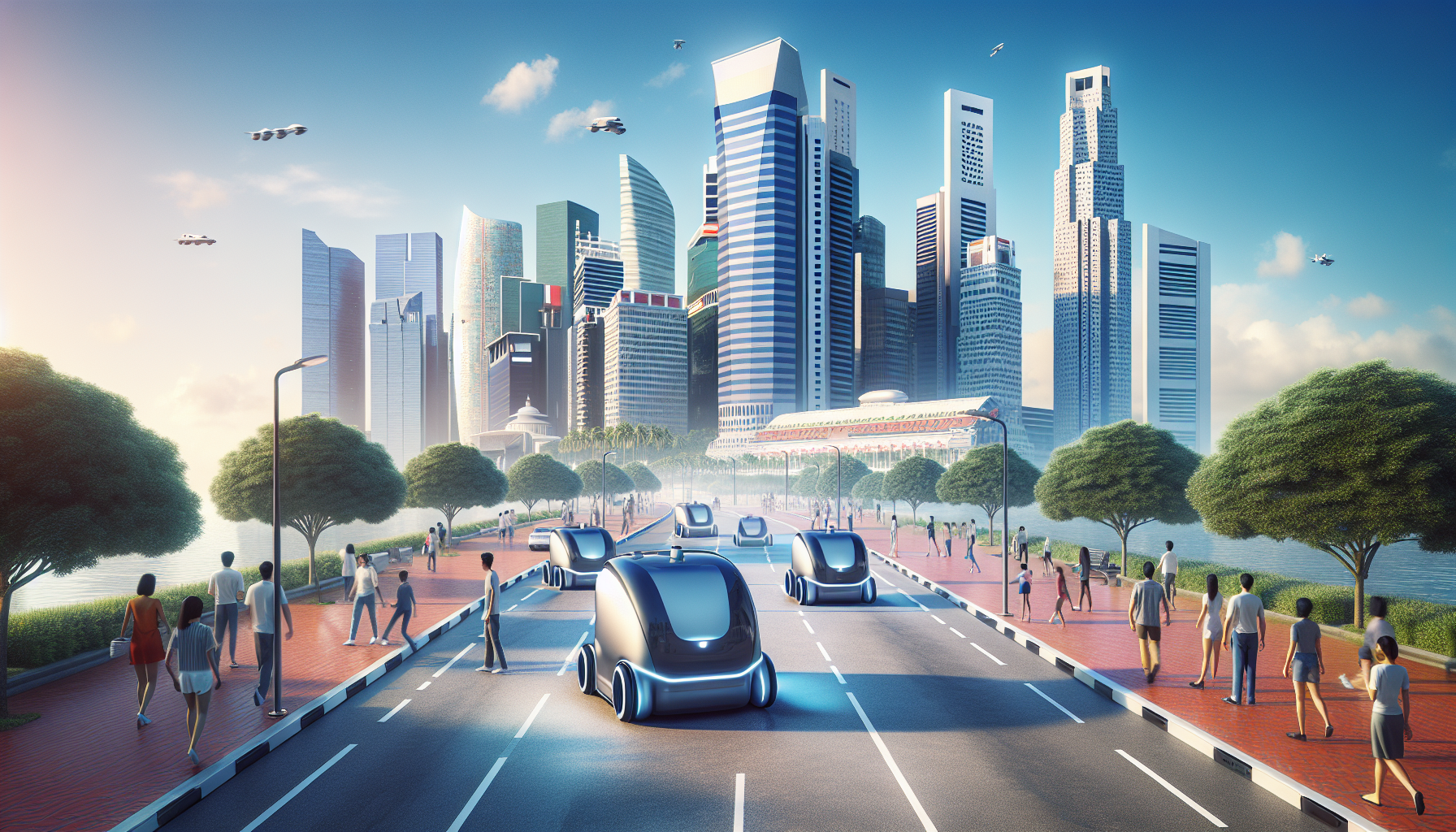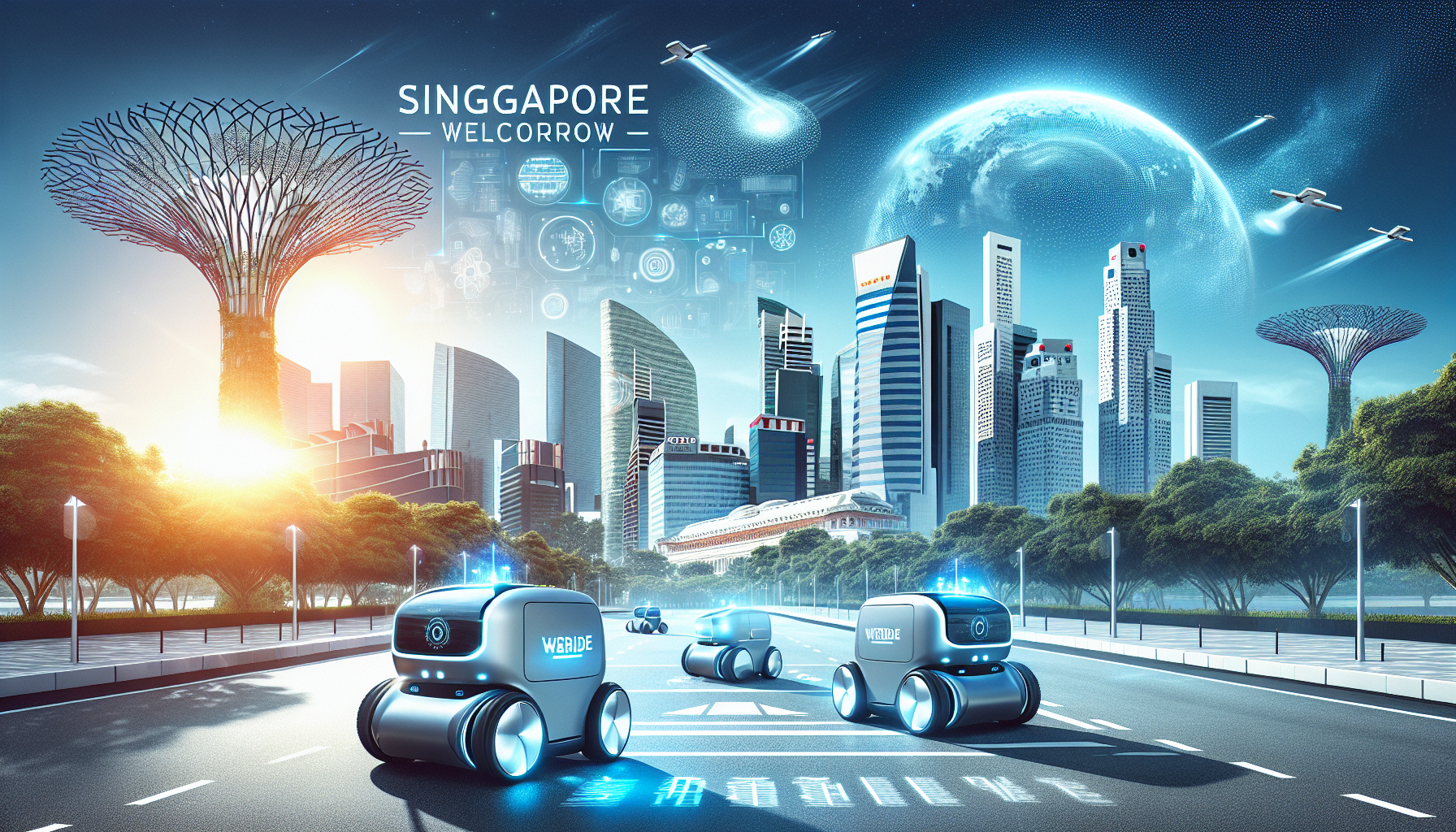Singapore Welcomes Tomorrow with WeRide’s Self-Driving Street Cleaning Vehicles
We independently review everything we recommend. When you buy through our links, we may earn a commission which is paid directly to our Australia-based writers, editors, and support staff. Thank you for your support!

Singapore’s Autonomous Street Sweepers Usher in a New Chapter in City Maintenance
WeRide, a pioneer in autonomous vehicle (AV) technology, has achieved a significant milestone in Singapore with the authorization to operate its Robosweeper S6 and S1 on public thoroughfares. This achievement not only marks a notable victory for WeRide but also exemplifies the global movement towards effective, technology-driven answers to urban challenges.
Singapore’s Land Transport Authority (LTA) has issued these licenses, underscoring the nation’s dedication to nurturing innovation within the AV sector. The Robosweepers are poised to address challenges such as workforce shortages in the sanitation sector, delivering an efficient and cost-effective means of keeping city streets clean in an increasingly urbanized environment.
Quick Overview
- WeRide obtains licenses for its autonomous street sweepers in Singapore.
- Robosweeper S6 and S1 will operate on public roads and pathways in Singapore.
- These autonomous sweepers respond to workforce gaps in the sanitation sector.
- Singapore’s regulatory framework encourages the evolution of autonomous vehicle technology.
- Autonomous vehicles may expand to other city services such as waste collection and public transit.
- This milestone aligns with a global shift toward practical AV uses.
WeRide’s Robosweepers: A Preview of Tomorrow
WeRide’s Robosweeper S6 and S1 are far from conventional street sweepers. These autonomous cleaning units come equipped with sophisticated sensor technology and AI-driven decision-making systems, allowing them to navigate public roads and pathways with accuracy. Singapore’s endorsement of these autonomous vehicles marks a pivotal moment, not only for WeRide but also for the broader AV sector.
While the AV field has primarily concentrated on self-driving passenger vehicles, WeRide’s Robosweepers signify an emerging trend: utilizing AV technology for targeted and functional applications. By concentrating on street cleaning, WeRide has identified a genuine application that meets an urgent demand—addressing labour shortages in the sanitation sector—while simultaneously paving the way for wider acceptance of AVs.
Why Singapore is at the Forefront
Singapore’s Land Transport Authority (LTA) has been leading AV innovation, proactively crafting frameworks for testing and launching AVs. The licenses awarded to WeRide clearly indicate the country’s welcoming stance towards autonomous technologies. Singapore’s regulatory initiatives could act as a model for other nations aspiring to incorporate AVs into their urban frameworks.
The nation’s progressive policies are not solely about maintaining cleanliness; they aim to cultivate an innovation ecosystem that has the potential to transform public services. Autonomous vehicles such as WeRide’s Robosweepers could drastically lower operational expenses and enhance efficiency in urban maintenance.

Partnership with CTM: A Move Towards Sustainability
WeRide’s Robosweeper isn’t merely a technological innovation; it exemplifies the strength of collaboration. The Robosweeper C6, adorned with the branding of Singapore’s cleaning company CTM (Chye Thiam Maintenance), represents a partnership focused on more than just cleanliness. CTM has consistently championed sustainable technologies, making this collaboration especially fitting.
CTM’s principle of “innovation as a driving force” aligns seamlessly with WeRide’s advanced solutions. The commitment to environmental responsibility and operational efficiency shines through in their collaboration. Together, they are addressing immediate urban challenges while also contributing to long-term sustainability objectives.

Beyond Street Sweeping: The Future of Autonomous Vehicles
Although WeRide’s Robosweepers currently focus on street cleaning, the range of potential uses for autonomous vehicles in municipal services is significant. From waste collection and delivery to public transit, autonomous technology could transform urban functioning. The deployment of the Robosweeper could invigorate further developments in AV technologies, especially in disciplines like sensor technology, mapping, and AI-fueled decision-making.
By emphasizing a specific and reliable operational setting—like street cleaning—WeRide is positioning itself to contribute incremental yet substantial advancements in AV technology. This strategy is also likely to boost public acceptance of autonomous vehicles, as communities observe their tangible benefits.
Global Impact: A Blueprint for the World
WeRide’s achievements in Singapore represent a segment of a larger global trend wherein autonomous vehicle firms are concentrating on specialized applications rather than solely on fully autonomous passenger transport. This approach enables companies to swiftly introduce AV technology to the market, providing immediate solutions to urgent urban challenges like workforce shortages and surging operational costs.
With Singapore setting the pace, it’s expected that other nations will take heed. The regulatory frameworks and real-world implementations occurring now could serve as templates for cities globally. WeRide’s Robosweepers might be just the start, igniting a wave of autonomous municipal services shortly.
Conclusion
WeRide’s Robosweepers are transforming street cleaning in Singapore, aided by their recent authorization to operate on public roads. This landmark event emphasizes the increasing trend of leveraging autonomous vehicle technology for specific, practical uses like sanitation, tackling workforce shortages, and enhancing urban efficiency. Singapore’s proactive regulatory framework has positioned it as a global frontrunner in AV testing and deployment, serving as a blueprint for other nations. Beyond just street sweeping, autonomous vehicles are set to revolutionize a comprehensive range of municipal services, heralding a future where urban environments are cleaner, safer, and more effective.
Q: What are WeRide’s Robosweeper S6 and S1?
A:
The Robosweeper S6 and S1 are autonomous street cleaning vehicles created by WeRide. They incorporate advanced sensor technology and AI-driven decision algorithms that enable them to effectively navigate public roads and pathways during cleaning operations.
Q: Why is Singapore’s endorsement of the Robosweepers notable?
A:
Singapore’s endorsement is a significant milestone for WeRide and the global autonomous vehicle (AV) industry. It represents one of the initial large-scale applications of AV technology in municipal services, highlighting Singapore’s innovation-friendly regulatory landscape and its readiness to embrace advanced technological solutions.
Q: How do autonomous street sweepers benefit urban areas?
A:
Autonomous street sweepers like the Robosweeper can alleviate workforce shortages in the sanitation sector, minimize operational expenditures, and enhance the overall efficacy of city maintenance. This technology also plays a role in promoting environmental sustainability by optimizing cleaning routes and lowering energy consumption.
Q: What other municipal functions could autonomous vehicles perform?
A:
Beyond street cleaning, autonomous vehicles could be utilized for a variety of municipal functions, including waste management, delivery operations, and public transport. The integration of autonomous vehicles in these domains could further streamline city services and reduce costs.
Q: How does this align with global trends in the autonomous vehicle sector?
A:
WeRide’s emphasis on targeted, practical uses like street sweeping mirrors a broader trend in the industry. Many AV firms are shifting attention from fully autonomous passenger vehicles to niches such as delivery, trucking, and now sanitation—areas where operational parameters are more consistent and where technology can be deployed more rapidly.
Q: Could WeRide’s achievements in Singapore impact other nations?
A:
Absolutely, Singapore’s regulatory environment and openness to AV technology may serve as a guiding example for other nations exploring the integration of autonomous vehicles into urban settings. As more cities recognize the advantages of AV technology in action, a broader global acceptance is anticipated.
